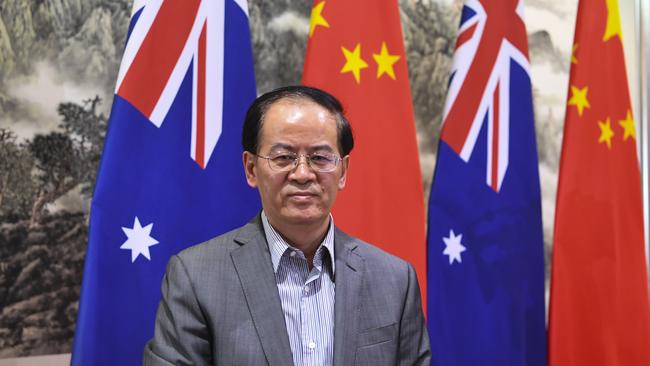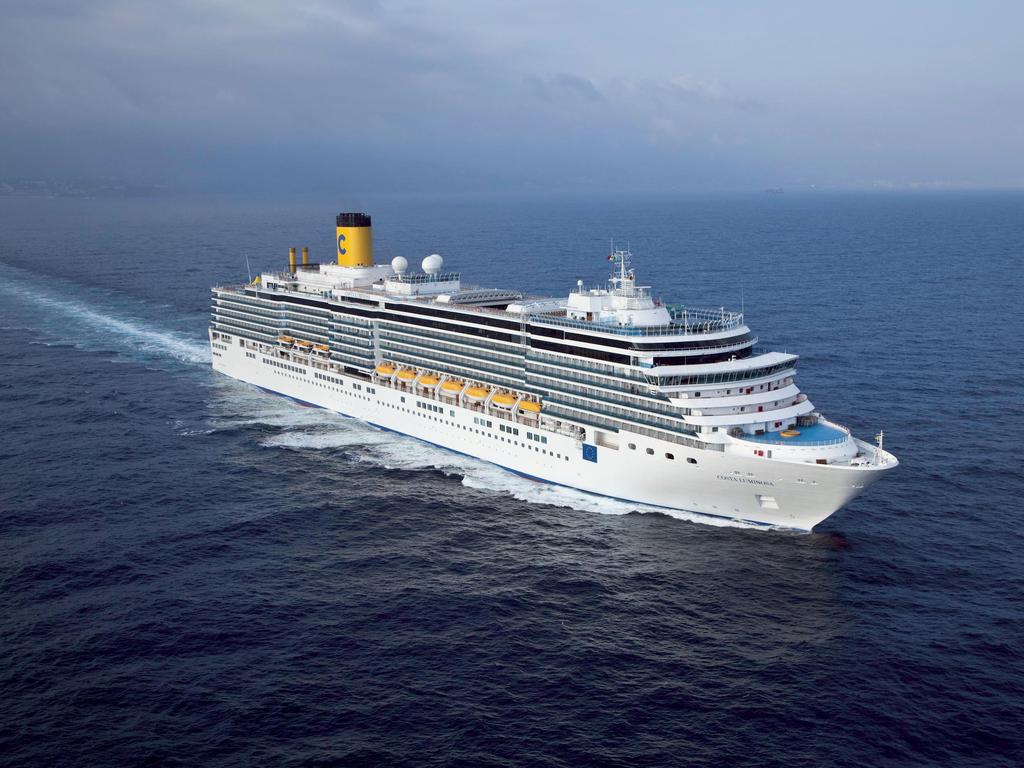Coronavirus Australia: Marise Payne right to reject threats from Beijing’s envoy
Marise Payne has rejected as ‘economic coercion’ a threat by China’s ambassador that Beijing could boycott Australia.

The Foreign Minister’s tough remarks came on the same day a senior official from the Department of Foreign Affairs and Trade called in China’s envoy, Cheng Jingye, to rebuke him for the tone and stridency of his frequent comments interfering in Australian politics.
Senator Payne doubled down on her call for an independent inquiry into the pandemic’s outbreak, saying it had produced “an unprecedented global crisis with severe health, economic and social impacts”. While acknowledging that the inquiry could be delayed to take account of nations struggling to cope with the crisis, she said: “A transparent and honest assessment of events will be critical as we emerge from the pandemic.”
In reported comments, Mr Cheng described the Morrison government’s proposal for an inquiry as “dangerous” and accused Canberra of pandering to US instructions. He said Chinese people were upset with Australia and if the trend continued they could decide not to come as tourists or students, and not eat Australian beef or drink Australian wine. Any such boycott would only be effective if led by the Chinese government.
Senator Payne responded bluntly. In remarks supplied to The Australian, she said: “We reject any suggestion that economic coercion is an appropriate response to a call for such an assessment, when what we need is global co-operation.”
The Morrison government has been unhappy for some time at the aggressive posture and hectoring of Mr Cheng, and his activist deputy, Wang Xining, whose remarks are often intimidatory in tone and cross over into interfering in Australian politics. This tone is most likely adopted on Beijing’s instructions.
In his memoirs launched last week, former prime minister Malcolm Turnbull says the Chinese undertake much more espionage than anyone else and don’t care if they get caught. The Australian Security Intelligence Organisation is known to face its biggest challenges, beyond terrorism, in Beijing-sponsored espionage and political interference. The hectoring and activism of the Chinese embassy in Australia has intensified in recent months and this reflects a trend of behaviour from Beijing’s missions in many parts of the world. Beijing seems to have settled on a counter-factual narrative that it is saving the world from coronavirus and simultaneously America is all bad. The Australian variation on the narrative is that Canberra’s concerns are entirely confected and expressed only as a response to instructions from Washington.
In reported comments, the ambassador would not accept that the COVID-19 pandemic started in Wuhan, or even that it started in China. He has not publicly supported the conspiracy theory put by some Chinese officials that the virus was imported into China by US servicemen.
Beijing has often threatened, and occasionally taken, trade actions for political reasons against other nations including South Korea, Japan and The Philippines. For a time the British were cast into diplomatic darkness by Beijing after David Cameron as prime minister met the Dalai Lama.
Recently, although Britain has tentatively decided to allow Chinese telco Huawei a limited participation in non-core elements of its 5G technology, Beijing has complained about the tone the British use to speak of China. It is believed there is now intense debate within the Johnson government around sentiment to reverse the decision and ban Huawei.
Beijing’s threats of trade action have mostly been exaggerated. The Chinese Communist Party is extremely unsentimental in trade, never doing you a favour because you are a friend, but never walking away from a good deal because you’re not a friend.
Senator Payne is right to hold her nerve, as is the Morrison government generally, in the perfectly reasonable suggestion for an independent, credible review of how COVID-19 broke out and spread and what lessons can be learned. Labor has quietly supported the government on this. How could anyone possibly support the opposite contention — that more than 200,000 dead, millions of infections and trillions of dollars in cost later, there should not be an independent review.








Foreign Minister Marise Payne has rejected as “economic coercion” a threat by China’s ambassador that Beijing could stop sending tourists and students to Australia, and boycott our agricultural exports, if the Morrison government persists with its call for an independent review of the pandemic.